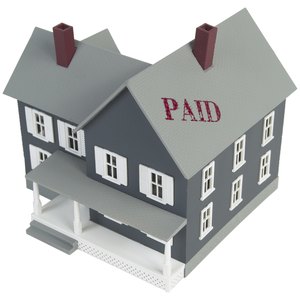
If you neglect to pay your property taxes on time, you can incur severe negative consequences, such as tax liens and even foreclosure. If a tax lien is filed against your property, you must pay all delinquent amounts due, including penalties and interest, to avoid further consequences. Upon payment, your taxing authority will issue a certificate of redemption and remove the tax lien from your property.
Tips
When you receive a certificate of redemption, it means you have satisfied all of the back taxes, penalties and interest associated with a tax lien against your property.
Due Dates
It is important to abide by your taxing authority's property tax due dates, which can be found on your property tax bill. Some jurisdictions offer a grace period for payment; however, taxes are considered late if paid after the specified due dates.
The untimely payment of taxes can result in your taxing authority levying serious penalties and interest against you. Taxes that remain delinquent for an extended period can result in a tax lien being filed on your property.
Tax Lien
Tax liens are your taxing authority’s statutory claim against your property, and they are prior and paramount to other liens, such as the deed of trust recorded by your mortgage lender. When you entered into your mortgage loan, you made various promises to your lender in exchange for the money extended to you for purchasing your home.
Those promises included paying your property taxes in a timely fashion and not jeopardizing your lender’s security interest in your property; a tax lien is evidence of a failure to fulfill both of those promises.
Potential for Foreclosure
Tax liens are recorded in the public records where your property is located. Left unresolved, they can result in a tax lien foreclosure sale by your taxing authority. Investors may purchase your lien and attempt full collection from you of the amount due or even conduct their own foreclosure sale.
Additionally, since property tax liens are senior to your mortgage lender’s deed of trust, your lender could call your loan due under your loan’s default provisions. Failure to pay your loan in full or cure your default could result in your lender initiating a foreclosure action.
Certificate of Redemption
To avoid a tax lien foreclosure or a default under the terms of your mortgage loan, you must redeem your property by paying all delinquent taxes due, as well as any penalties, interest and other fees. Upon payment, your taxing authority will issue a certificate of redemption and record it in the public records, lifting the tax lien from your property. The certificate also serves as proof that all of your delinquent tax liabilities have been brought current.
References
Writer Bio
Blyss Cruz has called Alaska home for 30 years. She has written numerous business, financial and legal documents related to her long-time employment in both the public and private financial sectors. Cruz holds a B.S. in Paralegal Studies and an MBA in business and accounting.

